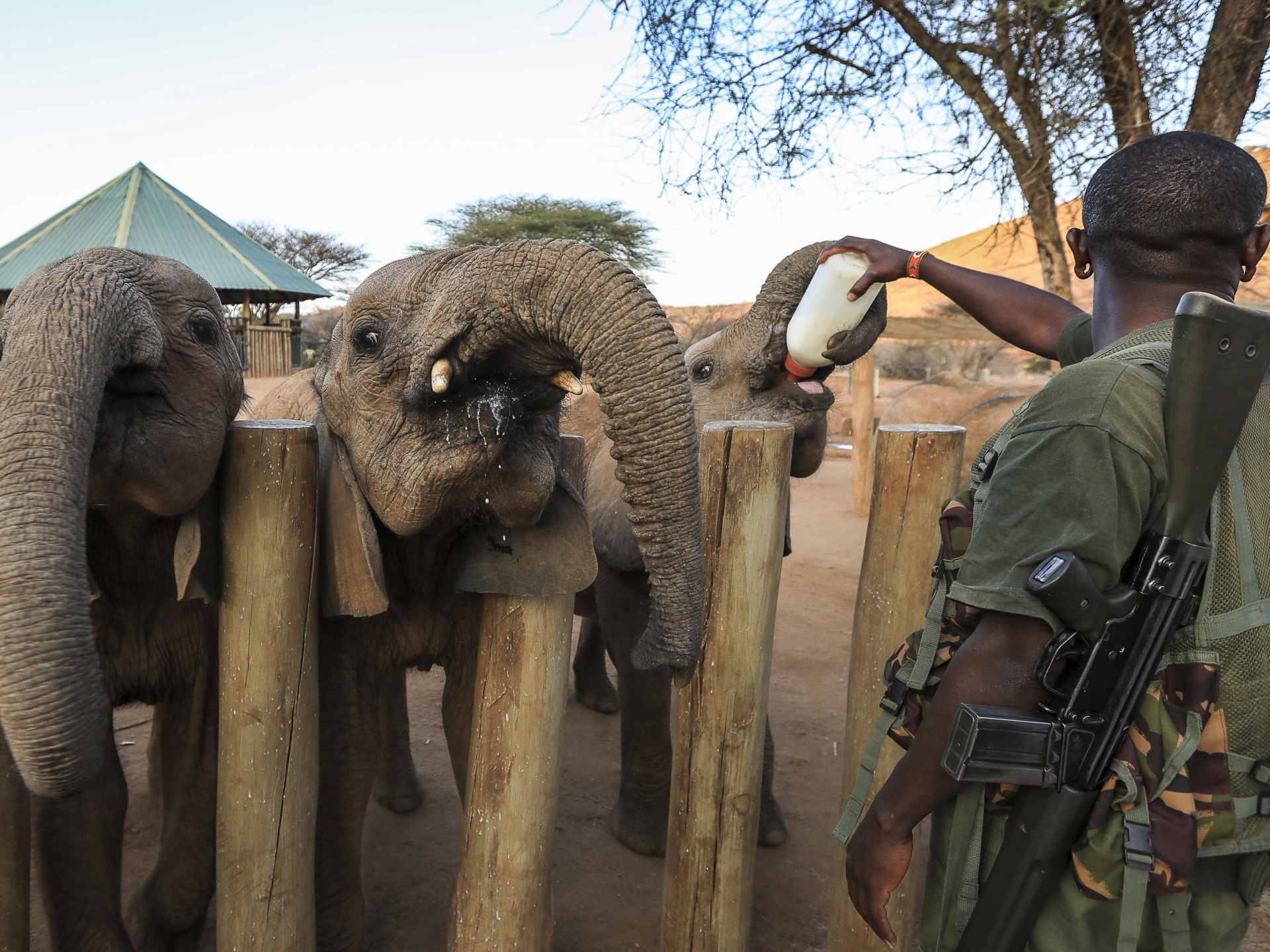East Africa is enduring its worst drought in 40 years and Kenyan wildlife is also bearing the brunt.
Drought in Kenya killed 205 elephants and numerous other wildlife between February and October as much of East Africa endures its worst drought in 40 years, tourism minister Peninah Malonza said on Friday.
Although sporadic rainfall has finally started in the region, Kenya’s meteorological department is forecasting below-average rainfall for much of the country for the coming months, raising fears that the threat to Kenya’s wildlife is not over.
“The drought has caused mortality of wildlife … because of the depletion of food resources as well as water shortages,” Malonza, the cabinet secretary for the Ministry of Tourism, Wildlife and Heritage, told a news conference.
Fourteen species have been affected by the drought, she said.
In addition to the dead elephants, 512 wildebeest, 381 common zebra, 12 giraffes, and 51 buffalo have also succumbed to the drought over the same period – some in the national parks that are a major tourist draw for the country.
There have also been 49 deaths of the rare and endangered Grevy’s zebra.
In September, conservation group Grevy’s Zebra Trust said that 40 Grevy’s had died in just a three-month period because of the drought, representing nearly 2 percent of the species’ population.
The figures released on Friday are likely far from comprehensive, the ministry warned in a report, saying carnivores could have devoured some carcasses.
“Thus, there is a possibility of higher mortality,” the report said.
News of the toll on wildlife in Kenya, where tourism contributes about 10 percent of economic output and employs over 2 million people, comes just days before the start of the UN climate conference, COP27.
Egypt, the conference host, has made the issue of “loss and damage”, compensation for losses from climate-related disasters, a focus of the talks. The issue has never been part of the UN talks’ formal agenda, despite being debated for years, as wealthy countries have resisted creating a funding mechanism that could suggest liability for historic climate damages.
The areas most affected by the drought are to the north and south of Kenya, home to the bulk of Kenya’s elephant population.
Last month, the charity Save the Elephants said one famed calf, well-known for being a twin, a rarity for elephants, died during the drought.
The ministry recommended providing vulnerable wildlife groups with water, salt licks, and food and to increase monitoring and data collection.
